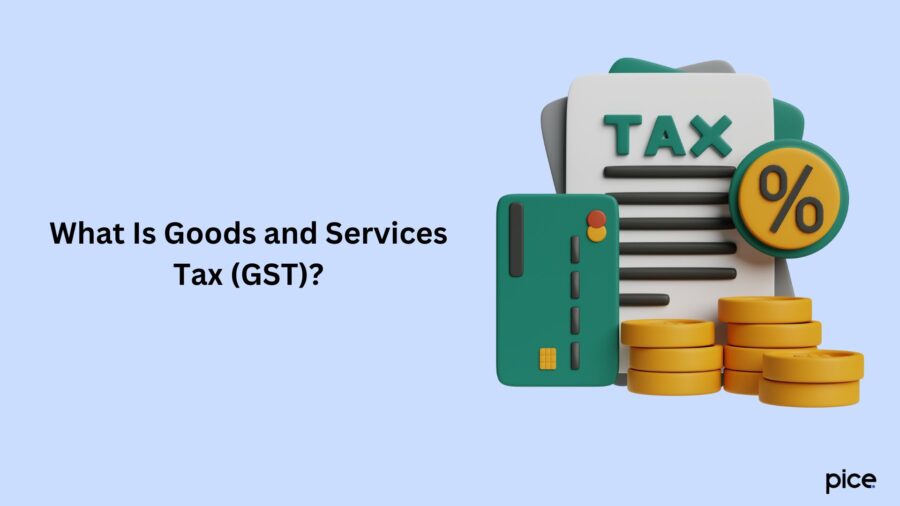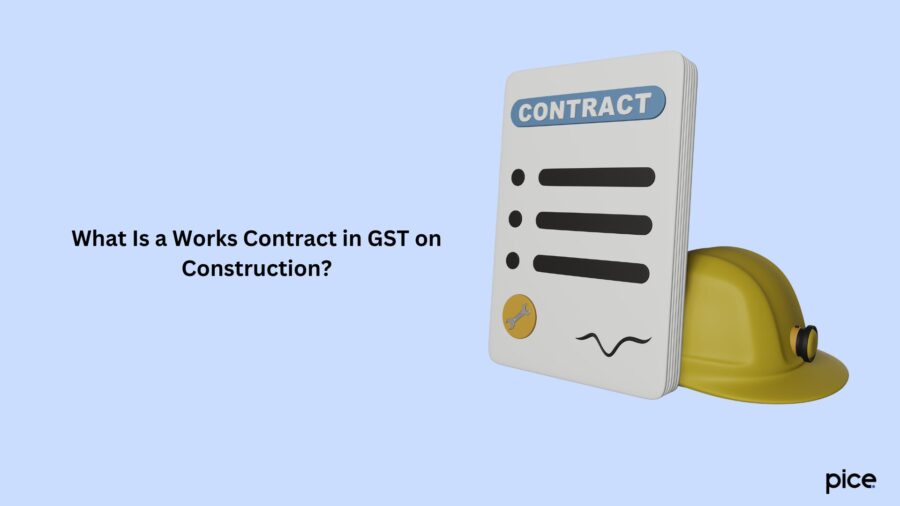GST Input on Construction of Building
- 8 Nov 24
- 8 mins

GST Input on Construction of Building
- What Is Goods and Services Tax (GST)?
- GST on Building Construction: An Overview
- GST Rates on Building Construction
- What Is a Works Contract in GST on Construction?
- Calculation of GST on Building Construction
- Impact of GST on Builders and Developers
- Situation in Which ITC Is Applicable on Construction of Building
- Conclusion
Key Takeaways
- Unified Taxation: GST merges multiple taxes, easing compliance for builders.
- Variable Rates: Affordable housing is taxed at 1% (no ITC), commercial at 18% (with ITC).
- Works Contracts ITC: Available only for same-field business use and plant machinery.
- ITC Limitations: Generally unavailable on construction except for rentals or business equipment.
- Financial Efficiency: Effective GST input management reduces tax, boosting cash flow.
Builders and developers in the construction industry can claim input tax credit for taxes paid based on certain conditions on input services. By doing so, they can reduce their tax liability on outward supplies and the GST collected on these supplies.
In this blog, we will walk you through a comprehensive guide on GST input on the construction of buildings while highlighting all the associated details that you need to know.
What Is Goods and Services Tax (GST)?

Goods and Services Tax (GST) is an indirect tax imposed on the supply of services and goods in India. The introduction of GST has replaced other indirect taxes such as VAT (Value-Added Tax), excise duty and service tax.
This has facilitated the elimination of the cascading tax effect in the Indian taxation system. Further, it has increased transparency in the taxation system and created a simplified tax structure.
GST on Building Construction: An Overview
\Supply of construction services and major building materials attracts GST. While increasing transparency and reducing hidden costs, it has also provided builders and developers with an opportunity to enhance their compliance processes. By navigating the compliance requirements under GST construction rules, builders and developers can streamline their operations in the construction industry.
GST Rates on Building Construction
The nature of construction services followed by the type of property determines the GST rates applicable to building construction activity. Let’s understand how these rates vary:
1. Residential Properties or Residential Apartment:
Here are the rates for residential construction properties:
- Affordable housing attracts 1% GST without input tax credit (ITC)
- Other than affordable housing, it attracts 5% GST without input tax credit
2. Commercial Buildings (Including Office Buildings and Institutional Buildings) or Industrial Buildings:
The GST rate for commercial properties is 18% with input tax credit.
3. Construction Services:
The GST rates on construction services are as follows:
- General construction services attract an 18% GST with input tax credit.
- Work contract services attract a 12% GST with an input tax credit. This rate applies to government contracts and affordable housing contracts.
Here is a detailed list of GST on construction rates:
| Construction Activity | GST Rate | HSN Code |
| Affordable housing apartment construction for projects starting on or after 1st April 2019 | 1% | 9954 |
| Non-affordable housing apartment construction for projects starting on or after 1st April 2019 | 5% | 9954 |
| Construction of commercial apartments in REP, excluding RREP | 12% | 9954 |
| Works contract services (in which the material is provided by the contractor) | 12% | 9954 |
| Works contract services (where only labour is provided by the contractor) | 18% | 9987 |
| Composite supply of works contract and goods (where the value of goods constitutes less than 25% of the total contract value) | 18% | 9954 |
| Composite supply of works contract and goods (where the value of goods is 25% or greater than the total contract value) | 12% | 9954 |
However, it is important to note that GST will no longer apply to a property, once a Completion Certificate is obtained from the competent authority after verification.
What Is a Works Contract in GST on Construction?

A works contract is an agreement for various activities related to building or improving immovable property. Under GST, works contracts encompass a broad range of activities of construction including:
- Fabrication and installation of metallic structures like plants, transmission towers, factories and stadiums
- Minor repair and maintenance of buildings, civil structures and equipment
- Completion and finishing services like plastering, flooring and painting
- Fabrication and erection of non-metallic structures using materials such as rubber, fibre, plastic and glass.
Calculation of GST on Building Construction
The calculation of GST on building construction for non-affordable housing is as follows:
Multi-story Residential Building (Other than Affordable Housing):
Consider the cost of construction for a residential building to be ₹1 crore. The applicable GST rate is 5%; thus the GST amount on the construction cost is ₹5 lakh. The total cost is the summation of the construction cost and the GST amount which is equal to ₹1.05 crore.
Impact of GST on Builders and Developers
The implementation of GST has pros and cons for builders and developers as follows:
Pros:
Here are the positive impacts on builders and developers:
- GST has streamlined the taxation process by consolidating multiple taxes into a single tax. This helps builders and developers better manage their tax obligations.
- The GST system facilitates a unified tax structure. This improves compliance under GST construction, reduces hidden costs and enhances transparency.
- Builders can reduce their tax burden and GST liability as they can claim input tax credit on the GST paid on inputs.
Cons:
Here are the negative impacts on builders and developers:
- The introduction of GST has resulted in increased administrative costs for builders and developers as they need to comply with strict GST rules and regulations. Further, the need to maintain detailed records increases the cost for builders in the construction industry/construction sector.
- Initial costs of construction often increase with a levy of GST. This impacts the cash flow and project timelines for developers and builders.
Situation in Which ITC Is Applicable on Construction of Building

Here are two situations in which ITC applies to the construction of the building:
ITC Availability for Work Contract
Suppliers cannot claim ITC on work contract services for supplies of construction of an immovable property. However, they can claim it for plants and machinery used for construction. In addition, if a person is working in the same line of business and supplying work contract services for business, they can avail ITC. This credit can also be claimed on expenses such as architect fees, approval charges, and construction equipment hire charges.
For instance, a building developer might work as a subcontractor in a construction project. The subcontractor will charge GST while the main contractor will raise the GST invoice. However, only the main contractor can claim ITC on the tax invoice that the subcontractor raises.
On the other hand, when the main contractor renders work contract services to an IT company, the contractor will not be able to avail ITC. The IT company will be able to claim ITC on the invoice raised by the contractor.
ITC Availability for Own Construction
A taxable person for construction of immovable property cannot avail Input Tax Credit on goods and services received, except for plants and machinery used for the furtherance of business. However, if the immovable property is rented out, the GST paid on the construction of the immovable property can be availed as ITC.
Conclusion
By effectively managing the GST input on the construction of buildings, builders and developers can reduce their GST liability, leading to enhanced cash flow and potentially shorter project timelines.
This strategic approach not only contributes to improved financial health but also fosters greater efficiency in the construction process.
💡If you want to streamline your payment and make GST payments, consider using the PICE App. Explore the PICE App today and take your business to new heights
 By
By 

















